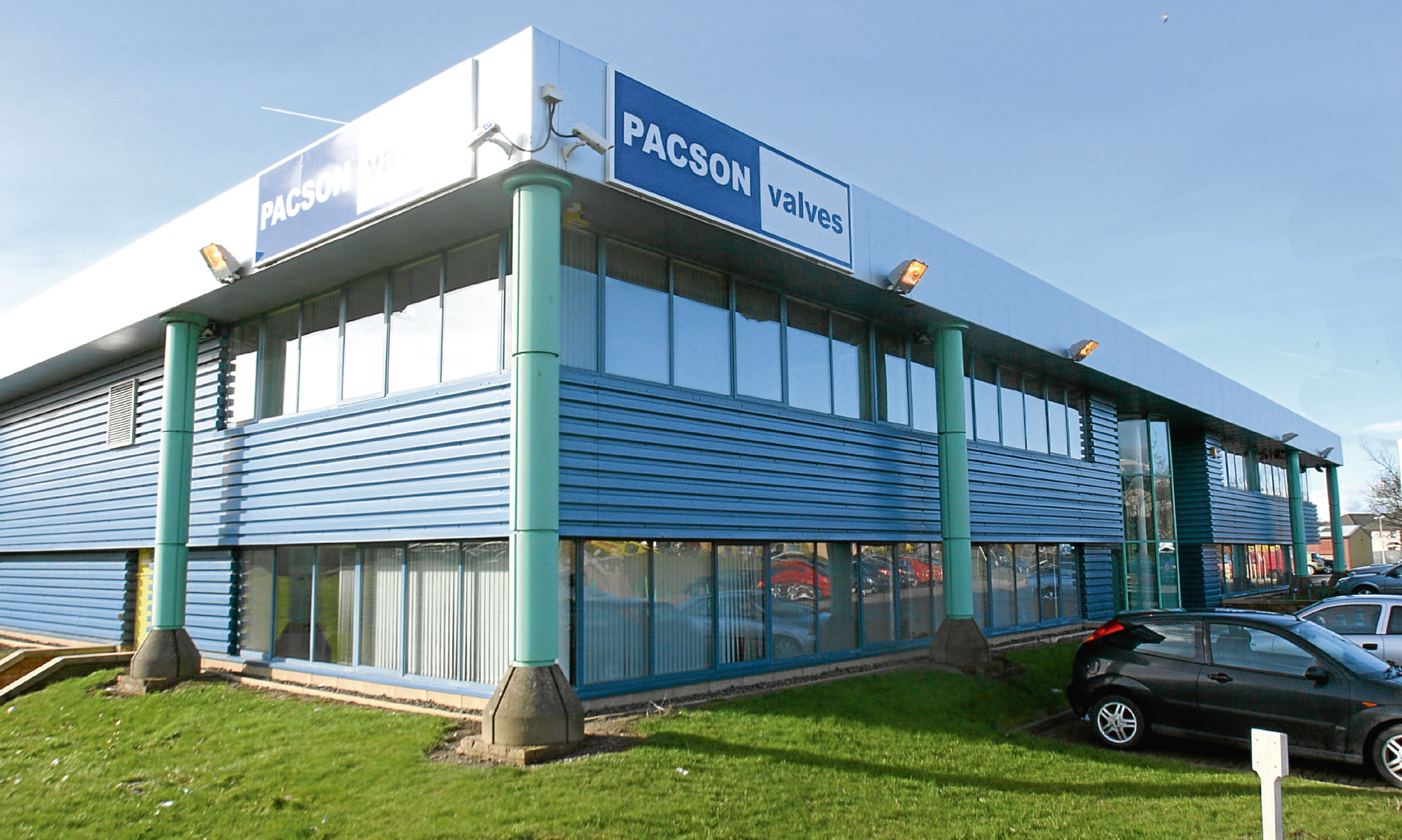A high-tech Dundee firm that produces subsea valves for the global energy industry has repositioned after being impacted by the global oil price crisis.
Claverhouse Industrial Estate-based Pacson Valves was dragged to a £266,027 loss for the year to October 2 as the collapse in the price of crude took its toll.
The result represented a £1 million turnaround from the previous 12 month period when Pacson recorded a £751,628 profit.
At £11.34m, revenues in 2015 were £2.3m lower than the previous year.
Commercial director John McLaren said it had been a difficult period for the sector as a whole and Pacson was not insulated from that.
The company has gone through two rounds of redundancies in the past 12 months – a process Mr McLaren said had been “incredibly tough” for all concerned – as it looked to align itself with market conditions.
Pacson’s workforce stands at around 80 and Mr McLaren said the firm was now in the “right position for the market as it stands”, with an oil price north of $50 per barrel.
In his statement to the accounts – which were approved on June 24 – managing director Keith Crawford said he believed the firm was now well positioned.
“At the end of 2014, the oil price started to drop significantly from a steady trading price in excess of $100 a barrel, to just over $40 a barrel by the end of September 2015,” Mr Crawford explained.
“This fall in the oil price was a result of oversupply in the world market and the industry reacted accordingly with a substantial reduction in capex in the sector.
“This reduced capex in the market in turn reduced the company’s order book and so we were required to re-size accordingly.
“The results of the company reflects the effects of the re-sizing to align to market conditions.”
Pacson designs, manufactures and tests high spec isolation valves and associated pressure containing equipment.
The company has clients operating in the North Sea but its products are also shipped to all the major global energy plays.
Mr Crawford said the company was poised to benefit from a sustained upturn in the oil market.
“Despite the extremely adverse market conditions, the company has continued to make significant improvements and is well positioned to take commercial advantage when the market starts to improve,” he said.
